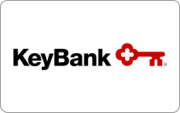The content on this page is accurate as of the posting date; however, some of the offers mentioned may have expired.
A high-yield savings account (or a high-interest savings account) is a savings account that offers a variable interest rate that's generally higher than rates available from a traditional savings account. The interest rates on these accounts can be multiple times higher than the national average for a regular savings account.
High-yield savings accounts are protected by the Federal Deposit Insurance Corporation (FDIC). This means that deposits are insured up to $250,000 per depositor, per insured bank, and per ownership category.
It's relatively easy to open a high-yield savings account. Depending on the financial institution, you can open an account at a bank branch or online. You will need to provide your contact information, Social Security number, and at least one form of government identification (such as a driver's license or passport). If you are opening a joint account, the other account holders must also provide this information.
Some high-yield savings accounts require a minimum initial deposit to open. You may also need to keep a minimum balance in the account. Failure to do so could lead to monthly fees or the closure of the account.
Once you've opened an account, you can start depositing and withdrawing funds. Keep in mind that many banks limit the number of transactions you can make with your account.






